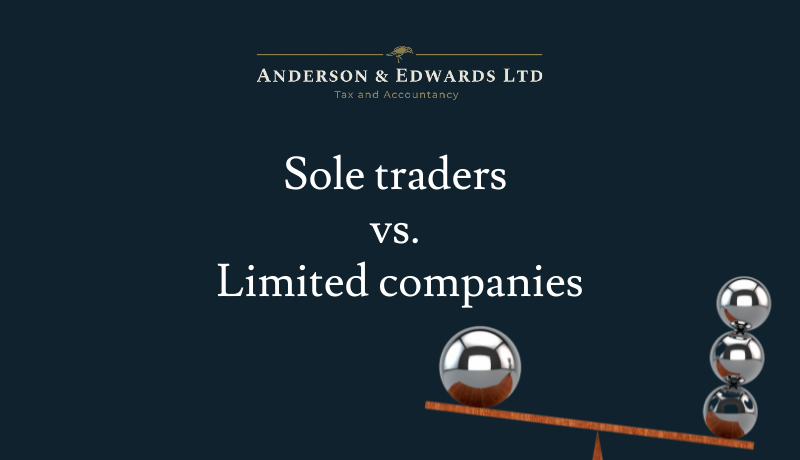Sole trader or limited company? You decide.
When setting up a new business, you have several structures to choose from before starting to trade. There are two types of business structures - unincorporated and incorporated entities. Each one has different reporting, legal and tax implications which you need to consider. Don’t know which one is right for you? We take you through the main advantages and disadvantages of each.
What is an unincorporated business structure?
An unincorporated business is commonly referred to as a ‘sole trader’. You can opt for this if you are setting up a business as an individual. Alternatively, you can set up a ‘partnership’ if you are going into business with someone else (or several people).
Advantages of being unincorporated
- Cost-effective - It’s low cost to create and begin trading from. You can trade straight away and thus start making money. However, a partnership set-up may require some initial costs to develop the agreement and legal fees relating to this.
- Privacy - You have a lot more privacy in your financial performance, as accounts are not published on the public record. This can therefore limit the opportunities your competitors have to view your accounts.
- Tax repayments - If the business is loss-making in the first financial period, you can carry back these losses to your employment income (if applicable) to get a tax refund from HMRC. Tax losses can be a good thing for your business too.
Disadvantages of being unincorporated
- Personal responsibility - As the business owner, you are liable for all of the business debts personally. This means your creditors could come after your personal assets to repay the business debts if the business fails. This is known as unlimited liability.
- High tax bill - Owners may have a high tax bill to pay if the business has a ‘good’ profitable year. This is because all earnings in the year are taxed in the same year - i.e. if your sales are higher than last year, but your expenses remain the same, you might be liable to pay more tax this year.
What is an incorporated business structure?
Incorporated business structures are registered entities. Limited companies (LTD) are an example of these. There are also Limited Liability Partnerships (LLP), which are partnerships where the partners have limited liabilities. An individual can set up an LTD, but 2 or more are required for LLPs. For the purposes of this blog, we’ll be focusing on LTDs.
Advantages of limited companies
- No personal liability - The shareholder and directors are not liable for the business debts if the business fails. This means that your personal assets cannot be used to pay off the business debts. However, if the directors are found to have misled creditors, they may be personally liable. This is called ‘lifting the veil’.
- Registered business name - When the company is created on Companies House, no one else can use your company name. This can allow you to create a brand around your company without someone else using your business name.
- More tax options - LTDs can enable the shareholders to be more tax-efficient than an unincorporated business. This is because companies are taxed at one rate whether their taxable profit is £1,000 or £1,000,000 (until 5th April 2023). The shareholders can then use dividends to withdraw the company's profit at a lower rate than if this was taken as a salary.
Disadvantages of limited companies
- Financial disclosure - Company accounts have to be sent to Companies House annually. This means that anyone with access to the internet can view your financial statements. Your accounts have slightly fewer disclosures when sent to Companies House than full accounts prepared for internal use, but people can still get a lot of information from them - i.e. profit and losses.
- High set-up costs - Initial set-up costs for an LTD will be higher than a sole trader, plus there are higher administrative costs. Although you can set a company for £12 from the Companies House website, unique articles of association specific to your situation will incur a cost to produce. There is also an annual fee that has to be paid to Companies House. Generally, accountancy fees are higher too as company accounts require more time to prepare than unincorporated accounts.
Still can't decide which is best for you?
As accountants and business owners, we want to help you set up a business that is right for you, in the most candid way possible. If you like the sound of our approach, get in touch: email Enable JavaScript to view protected content. or phone us on 0131 364 4191.
